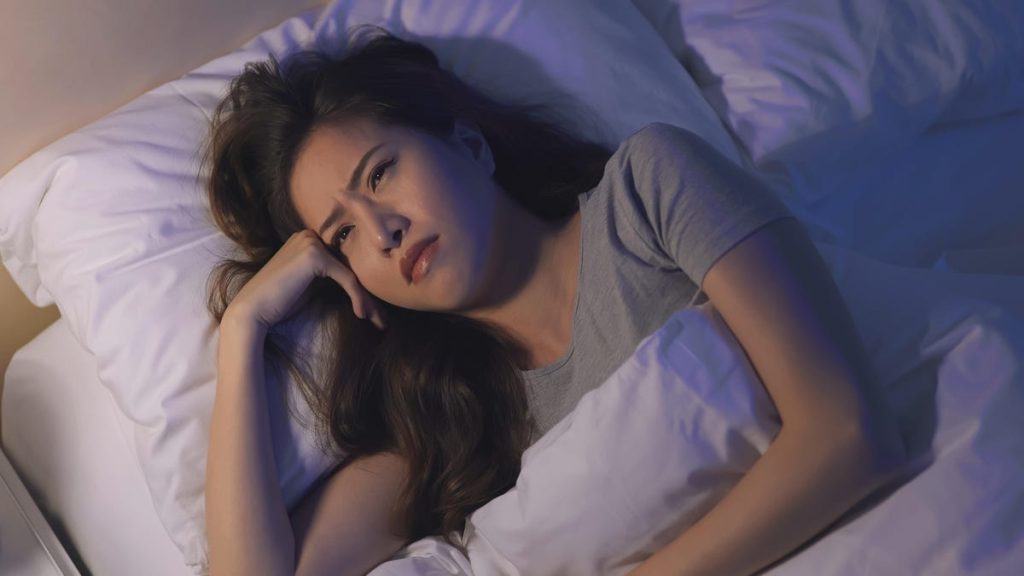Many of us have experienced the struggle of trying to fall asleep while feeling anxious. This is due to the release of the stress hormone cortisol by the autonomic nervous system, which keeps us awake. This can create a vicious cycle, as poor sleep can worsen anxiety symptoms. However, there are ways to break this cycle and improve the quality of sleep. Establishing a nighttime routine can help signal to the brain that it’s time to wind down for sleep. This routine could involve activities like yoga or journaling, done at the same time and in the same order each night. If you find yourself unable to fall asleep, it’s best to get up and do something relaxing rather than laying in bed awake.
Watching what you consume, especially in the hours leading up to bedtime, can also impact anxiety and sleep. Caffeine should be avoided for at least 6 hours before sleep, as it can exacerbate feelings of anxiety and keep you awake. Similarly, alcohol consumption should be limited at least 4 hours before bedtime to prevent disruptions in sleep patterns. Meditation apps can be a quick and effective way to relax and reduce anxiety levels. Research shows that meditation can lower stress and anxiety, as well as reduce blood pressure and heart rate. These apps offer guided meditations, breathing exercises, and calming stories, making it easy to integrate relaxation into your nightly routine.
Weighted blankets, which provide deep-pressure stimulation, have been found to help calm anxiety and improve sleep. A study conducted in 2020 showed that individuals who used weighted blankets experienced lower rates of insomnia and anxiety. Adding a weighted blanket to your bed can offer comfort and aid in relaxation before sleep. It’s important to acknowledge your feelings of anxiety and find ways to address them. Incorporating stress-relieving activities into your daily routine, such as taking a walk or engaging in exercise, can help prevent anxiety from building up at night. If anxiety continues to impact your sleep, seeking professional help may be necessary for long-term improvement.
Creating a consistent bedtime routine, avoiding stimulants like caffeine and alcohol, using meditation apps, and incorporating a weighted blanket can all contribute to better sleep when dealing with anxiety. By acknowledging your anxiety and finding ways to manage it through relaxation and stress-relieving activities, you can gradually improve your sleep quality. Remember that these changes may not lead to immediate results, but being consistent and patient can help in the long run. If anxiety continues to interfere with your sleep, don’t hesitate to seek help from a healthcare professional.


